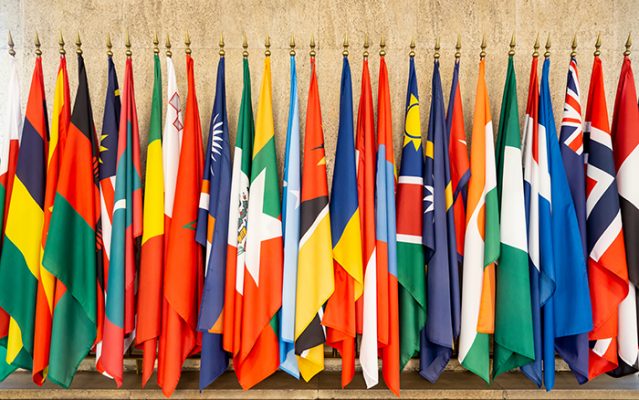Helping Nations Build Trusted Digital Identity
Citizens want to use the Internet to connect to their government for a myriad of reasons. Wouldn’t it be great if you could use the Web to pay your taxes, vote, obtain a driver’s license, or apply for a birth certificate? To a large extent, governments are welcoming this digital transformation. Moving online improves the efficiency and accessibility of citizen-facing services.
But citizens also want to assert their government identities to third parties–not just to government websites. National governments are uniquely positioned to combine foundational and digital identities. Some technologically advanced countries, like Singapore, offer a national identity provider or “IDP” that both the public and private sectors can leverage. A national IDP is not meant to replace consumer social login (e.g. Google or Facebook). It provides a higher assurance alternative when the website needs a trusted verification of the person in front of the browser–for example when you open a bank account.
Our migration to a more digital society is both exciting and scary. From a security perspective, a national IDP with the personal details of citizens is a honeypot for hackers, who persistently improve their capabilities. Governments need advancements in IDP software that mitigate the latest risks, like phone-based authentication using biometrics, and machine learning to detect risk.
Since we founded Gluu in 2009, we’ve helped national, state, and city governments to roll out digital identity services. There are both functional and operational challenges. An example of a functional challenge is onboarding third-party websites to use the national IDP. An operational challenge is scaling up the infrastructure just in time to handle very high loads, and scaling it down to reduce cost when traffic is low.
The community is the key to sustainable open-source software projects. This is the reason Janssen has invested so heaving in building the Agama programming language, and why Gluu launched Agama Lab, a developer tool. Low code tools like Agama make it easier to launch a purpose-built IDP with the citizen identity journeys that are required. Low code also makes it easier to hand off code, through visual whiteboard representations of the flows. And it’s fun to build and share Agama projects.
When Gluu contributed our code to the Linux Foundation Janssen Project in 2020, we hadn’t heard the term “Digital Public Good” or “DPG”. But the philosophy and principles behind the movement align perfectly with the Janssen Project’s mission to build the world’s leading community-governed digital identity platform. We strongly believe that the Janssen Project software can enable countries to build safe, trusted, and inclusive public digital identity infrastructure, and that Janssen software addresses more challenges than any other existing commercial or open-source platform.
At Gluu, we’re excited that the Digital Public Goods Alliance has recognized the Janssen Project as a Digital Public Good (DPG). It doesn’t change what we’re doing, why, or how. DPG or not… Gluu will continue to contribute to the Janssen Project because we think it’s the right way to build the core technology for our commercial product. But at the same time, it’s nice to know that the knowledge that we’ve acquired over the last fourteen years, much of which is reflected in our software, can benefit low and middle-income nations who are struggling to build this existentially important new component of our digital society.
If you’re interested in learning more about the Linux Foundation and Janssen Project being recognized for their digital public goods, be sure to check out this press release on LinkedIn.

